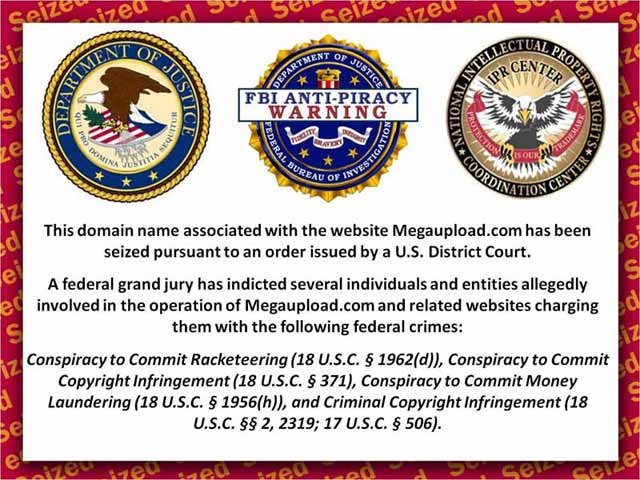MEGAUPLOAD.COM
- Category: 🏴☠️ Piracy
- Seized Date: 2012-01-19
- Visibility: Clear web
Description
Megaupload was an online file-sharing and storage service founded by Kim Dotcom in 2005. It quickly gained widespread popularity due to its user-friendly design and the ability to upload and share large files with ease. Users could upload a variety of content, including videos, music, software, and documents, making the platform attractive for both personal and professional use.
The service operated on a freemium model, offering both free and premium accounts. Free users were subject to limitations on file size, download speeds, and waiting times, while premium subscribers enjoyed faster downloads, larger upload capacities, unlimited storage, and uninterrupted access to shared files.
While Megaupload experienced massive growth, it also became highly controversial. The site was frequently used to distribute copyrighted materials without permission, leading to accusations that it played a central role in enabling digital piracy. Rights holders and law enforcement agencies alleged that the platform knowingly profited from the illegal distribution of protected content.
In January 2012, the United States Department of Justice, with assistance from international authorities, shut down Megaupload and seized its domains. Kim Dotcom and several key executives were arrested and charged with offenses including copyright infringement, money laundering, and racketeering. The shutdown was part of a broader campaign to combat online piracy and enforce intellectual property rights.
The closure of Megaupload sparked global debate about internet freedom, digital rights, and the balance between protecting intellectual property and maintaining a free, open web. Critics viewed the shutdown as an overreach by government authorities and a threat to online innovation, while supporters argued that Megaupload’s practices were illegal and its removal was necessary to uphold the law.
The legal battles involving Megaupload and its leadership continued for years, highlighting the challenges of enforcing copyright laws in the digital age. The case remains a landmark event in the ongoing conversation around internet regulation and digital freedoms.


